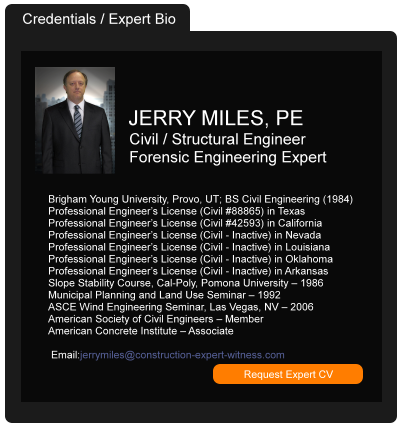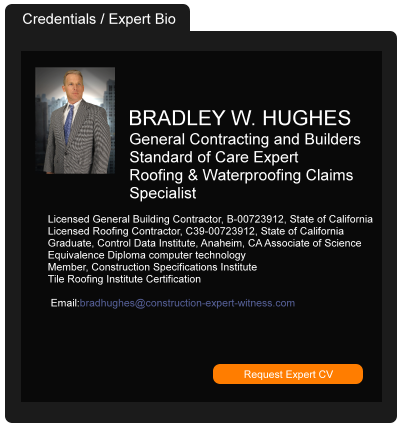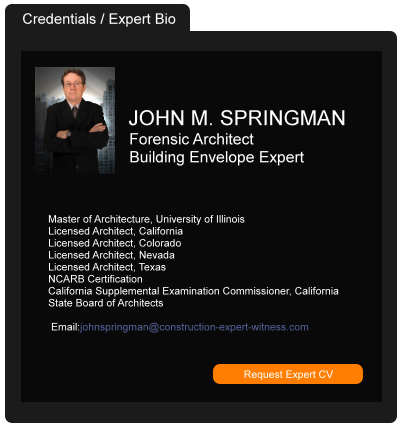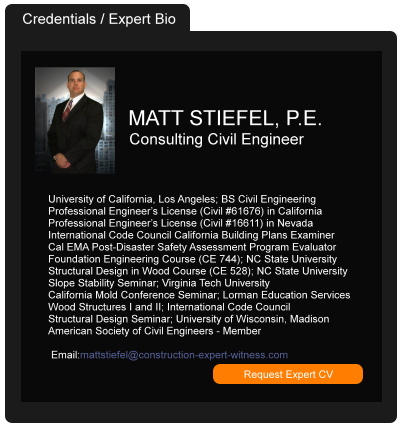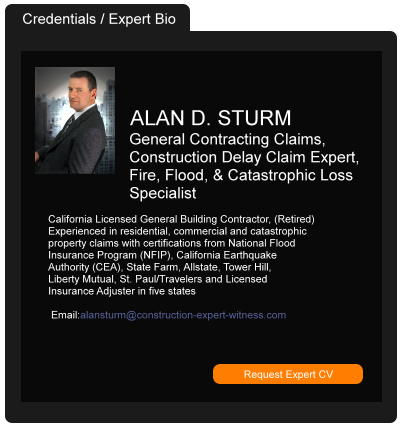Leveraging the 50-State Initiative, Connecticut and Maine Team Secure Full Dismissal of Coverage Claim for Catastrophic Property Loss
March 23, 2020 —
Regen O'Malley - Gordon & Rees Insurance Coverage Law BlogOn behalf of Gordon & Rees’ surplus lines insurer client, Hartford insurance coverage attorneys Dennis Brown, Joseph Blyskal, and Regen O’Malley, with the assistance of associates Kelcie Reid, Alexandria McFarlane, and Justyn Stokely, and Maine counsel Lauren Thomas, secured a full dismissal of a $15 million commercial property loss claim before the Maine Business and Consumer Court on January 23, 2020. The insured, a wood pellet manufacturer, sustained catastrophic fire loss to its plant in 2018 – just one day after its surplus lines policy expired.
Following the insurer’s declination of coverage for the loss, the wood pellet manufacturer brought suit against both its agent, claiming it had failed to timely secure property coverage, as well as the insurer, alleging that it had had failed to comply with Maine’s statutory notice requirements. The surplus lines insurer agreed to extend the prior policy several times by endorsement, but declined to do so again. Notably, the insured alleged that the agent received written notice of the non-renewal prior to the policy’s expiration 13 days before the policy’s expiration. However, the insured (as well as the agent by way of a cross-claim) asserted that the policy remained effective at the time of the loss as the insured did not receive direct notice of the decision not to renew coverage and notice to the agent was not timely. Although Maine’s Attorney General and Superintendent intervened in support of the insured’s and agent’s argument that the statute’s notice provision applied such that coverage would still be owed under the expired policy, Gordon & Rees convinced the Court otherwise.
At issue, specifically, was whether the alleged violation of the 14-day notice provision in Section 2009-A of the Surplus Lines Law (24-A M.R.S. § 2009-A), which governs the “cancellation and nonrenewal” of surplus lines policies, required coverage notwithstanding the expiration of the policy. The insured, the agent, and the State of Maine intervenors argued that “cancellation or nonrenewal” was sufficient to trigger the statute’s notice requirement, and thus Section 2009-A required the insurer to notify the insured directly of nonrenewal. In its motion to dismiss, Gordon & Rees argued on behalf of its client that Section 2009-A requires both “cancellation and nonrenewal” in order for the statute to apply. Since there was no cancellation in this case – only nonrenewal – Gordon & Rees argued that Section 2009-A is inapt and that the insurer is not obligated to provide the manufacturer with notice of nonrenewal. Alternatively, it argued that the statute is unconstitutionally vague and unenforceable.
Read the court decisionRead the full story...Reprinted courtesy of
Regen O'Malley, Gordon & ReesMs. O'Malley may be contacted at
romalley@grsm.com
Potential Extension of the Statutes of Limitation and Repose for Colorado Construction Defect Claims
April 27, 2020 —
David M. McLain – Colorado Construction LitigationOn January 27th, Senator Robert Rodriguez introduced SB 20-138 into the Colorado Legislature. The bill has been assigned to the Senate Judiciary Committee and has not yet been scheduled for its first hearing in that committee. In short, Senate Bill 20-138, if enacted, would:
- Extend Colorado’s statute of repose for construction defects from 6+2 years to 10+2 years;
- Require tolling of the statute of repose until the claimant discovers not only the physical manifestation of a construction defect, but also its cause; and
- Permit statutory and equitable tolling of the statute of repose.
Colorado’s statute of repose for construction defect claims are codified at C.R.S. § 13-80-104. In 1986, the Colorado Legislature set the statute of repose period at 6+2 years. For the last 34 years, Colorado’s statute of repose for owners’ claims against construction professionals has been substantially the same, to wit:
(1) (a) Notwithstanding any statutory provision to the contrary, all actions against any architect, contractor, builder or builder vendor, engineer, or inspector performing or furnishing the design, planning, supervision, inspection, construction, or observation of construction of any improvement to real property shall be brought within the time provided in section 13-80-102 after the claim for relief arises, and not thereafter, but in no case shall such an action be brought more than six years after the substantial completion of the improvement to the real property, except as provided in subsection (2) of this section.
(2) In case any such cause of action arises during the fifth or sixth year after substantial completion of the improvement to real property, said action shall be brought within two years after the date upon which said cause of action arises.
Read the court decisionRead the full story...Reprinted courtesy of
David McLain, Higgins, Hopkins, McLain & RoswellMr. McLain may be contacted at
mclain@hhmrlaw.com
Topic 606: A Retrospective Review of Revenue from Contracts with Customers
October 12, 2020 —
Christopher Sisk & Robert Mercado - Construction ExecutiveThe anticipation has been building regarding implementation of the new revenue recognition standard, known as Topic 606, by private companies. Public companies have reported under Topic 606 since the beginning of 2019. For private companies, the time is now. As of January 2020, private companies became subject to Topic 606 for all entities with a year-end of Dec. 31, 2019, or subsequent. However, with the COVID-19 pandemic affecting businesses across the board, this year any company with a year-end financial statement not yet issued can defer implementation of Topic 606 until the contractors’ next year end that falls after Dec. 15, 2020.
What have we learned about the impact of Topic 606, if any, on construction contractors’ financial statements? The most significant impact relates to the presentation of contract assets and contract liabilities, and the disclosures associated with Topic 606. The recording of what is known as “the cost to fulfill a contract” is another area that has been affected.
PRESENTATION OF CONTRACT ASSET AND CONTRACT LIABILITY
A contract asset is defined in Topic 606 as an entity’s right to consideration in exchange for goods or services the entity has transferred to a customer, conditional on something other than the passage of time.
Reprinted courtesy of
Christopher Sisk & Robert Mercado, Construction Executive, a publication of Associated Builders and Contractors. All rights reserved.
Mr. Sisk may be contacted at Christopher.sisk@marcumllp.com
Mr. Mercado may be contacted at Robert.mercado@marcumllp.com
Read the court decisionRead the full story...Reprinted courtesy of
Eighth Circuit Remands to Determine Applicability of Collapse Exclusion
January 06, 2012 —
Tred R. Eyerly - Insurance Law HawaiiThe Eighth Circuit determined a jury instruction regarding the applicability of the "all-risk" policy’s exclusion for "collapse" was inadequate. See KAAPA Ethanol, LLC v. Affiliated FM Ins. Co., 2011 U.S. App. LEXIS 22158 (8th Cir. Nov. 3, 2011).
KAAPA had nine large, cylindrical, stainless steel tanks fabricated at its location. Soon after operations began in 2003, some of the tanks experienced unusual movement and began to shift. A geotechnical engineer found "silty clay" had been used for infill instead of compacted granular fill called for in engineering drawings. A year long plan to repair all nine tanks was implemented.
Affiliated’s "all-risk" policy excluded damage caused by faulty workmanship. It also excluded damage caused by settling or cracking. The settling exclusion went on to provide, "This exclusion will not apply to loss or damage resulting from collapse of: a building or structure; or material part of a building or structure." Affiliated denied coverage because of the faulty workmanship and settling exclusions.
Read the full story…
Reprinted courtesy of Tred R. Eyerly, Insurance Law Hawaii. Mr. Eyerly can be contacted at te@hawaiilawyer.com
Read the court decisionRead the full story...Reprinted courtesy of
Pollution Created by Business Does Not Deprive Insured of Coverage
November 26, 2014 —
Tred R. Eyerly – Insurance Law HawaiiThe federal district court determined that coverage was properly denied under the pollution exclusion of the policies. Headwaters Resources, Inc. v. Illinois Union Ins. Co., 2014 U.S. App. LEXIS 20060 (10th Cir. Oct. 20, 2014).
Over 400 residents of Chesapeake, Virginia, filed two lawsuits against the insured, Headwaters, alleged property damage and bodily injury due to pollution generated in connection with the development of a golf course. The complaints alleged that between 2002 and 2007, the defendants used 1.5 million tons of toxic fly ash during construction of a golf course. The insured allegedly transported the fly ash to an open pit adjacent to residential neighborhoods. The chemicals from the fly ash leached into the ground water, damaging the private wells. The fly ash pit also released airborne contaminants that produced a strong smell of ammonia. As a result of the alleged contamination, the property values of plaintiffs' homes depreciated and members of the community faced increased risk of serious bodily injuries caused by exposure to the fly ash.
Read the court decisionRead the full story...Reprinted courtesy of
Tred R. Eyerly, Insurance Law HawaiiMr. Eyerly may be contacted at
te@hawaiilawyer.com
Claims for Bad Faith and Punitive Damages Survive Insurer's Motion for Summary Judgment
August 02, 2017 —
Tred R. Eyerly - Insurance Law HawaiiThe court denied the insurer's motion for partial summary judgment seeking to dismiss claims for bad faith and for punitive damages. Van Der Weide v. Cincinnati Ins. Co., 2017 U.S. Dist. LEXIS 101735 (N.D. Iowa June 30, 2017).
The homeowner sued the insured general contractor after water was found leaking into the home, causing significant water damage. Cincinnati rejected the general contractor's tender and denied any duty to defend, contending that the alleged defects were discovered after Cincinnati's policy period had ended. Cincinnati was advised that two experts for the insured would testify that the property damage occurred due to construction defects and that the damage began shortly after completion of the home. Cincinnati still refused to defend.
Read the court decisionRead the full story...Reprinted courtesy of
Tred R. Eyerly - Insurance Law HawaiiMr. Eyerly may be contacted at
te@hawaiilawyer.com
Uneven Code Enforcement Seen in Earthquake-Damaged Buildings in Turkey
February 14, 2023 —
Jeff Rubenstone & Neelam Matthews - Engineering News-RecordThe aftermath of the Feb. 6 earthquakes and aftershocks in central Turkey has begun to shift from immediate search-and-rescue efforts to a grim cataloguing of the extent of the destruction, with emergency response teams in Turkey and Syria beginning the work of evaluating the condition of thousands of buildings and infrastructure impacted by the temblors.
Reprinted courtesy of
Jeff Rubenstone, Engineering News-Record and
Neelam Matthews, Engineering News-Record
Mr. Rubenstone may be contacted at rubenstonej@enr.com
Read the full story... Read the court decisionRead the full story...Reprinted courtesy of
California Contractor Spills Coffee on Himself by Failing to Stay Mechanics Lien Action While Pursuing Arbitration
August 14, 2018 —
Garret Murai - California Construction Law BlogIt bugs the Mrs. that I have a habit of reading the directions. “Just plug the darn thing in!” said the Mrs. when we got a new coffee maker to replace our old one which we’ve had since I think before we were married (Life Lesson No. 347: Get a coffee maker you really, really like because they last forever). “But . . . the directions?,” I said.
By the time I had finished reading the instruction manual I could smell the coffee brewing in the kitchen. Granted, the Mrs. is more practical than I am in many ways (e.g., “You know, you didn’t need to buy 10 cans of corn to get the 10 for $10 discount. I guess you’re going to be eating a lot of corn”). But still. What might have happened if there was a serious coffee mishap?
And worrier as I may be mishaps can happen if you don’t read the directions. James Zenovic didn’t read the directions, and here’s his story . . .
Von Becelaere Ventures, LLC v. Zenovic
In Von Becelaere Ventures, LLC v. Zenovic, Case No. D072620 (June 6, 2018), James Zeonovic doing business as James Zeonovic Construction entered into a construction contract to build a single-family house for Von Becelaere Ventures, LLC in Laguna Beach, California. The construction contract included an arbitration provision that stated:
If any dispute arises concerning this Contract or the interpretation thereof, of concerning construction of the Improvements, or the Limited Warranty, customer service, defects, damages, or obligations therewith (a “Construction Dispute”), such Construction Dispute will be settled by binding arbitration. Read the court decisionRead the full story...Reprinted courtesy of
Garret Murai, Wendel, Rosen, Black & Dean LLPMr. Murai may be contacted at
gmurai@wendel.com
























































